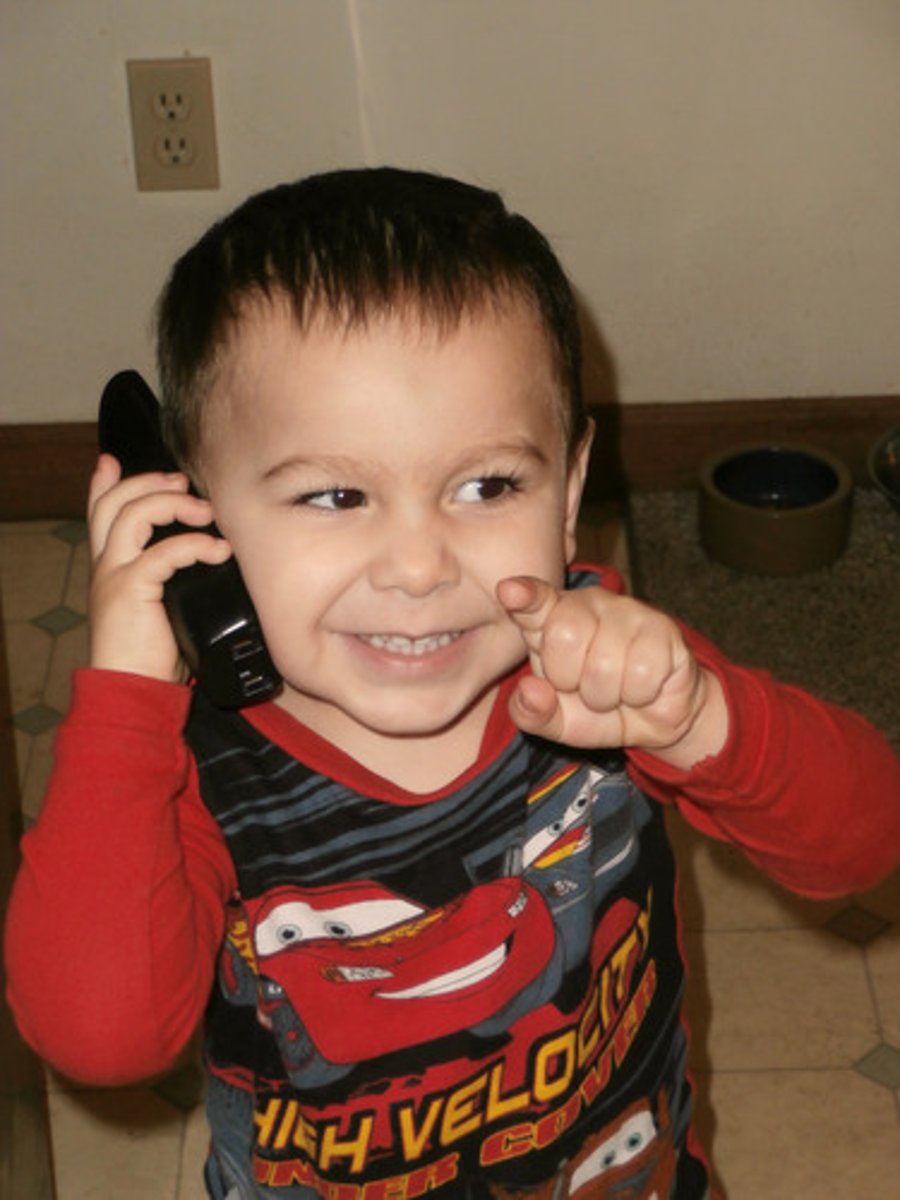AP Psychology: Topic 3.5 - Communication and Language Development
1/9
There's no tags or description
Looks like no tags are added yet.
Name | Mastery | Learn | Test | Matching | Spaced |
|---|
No study sessions yet.
10 Terms
Phonemes
the smallest units of sound that are recognizable as human speech
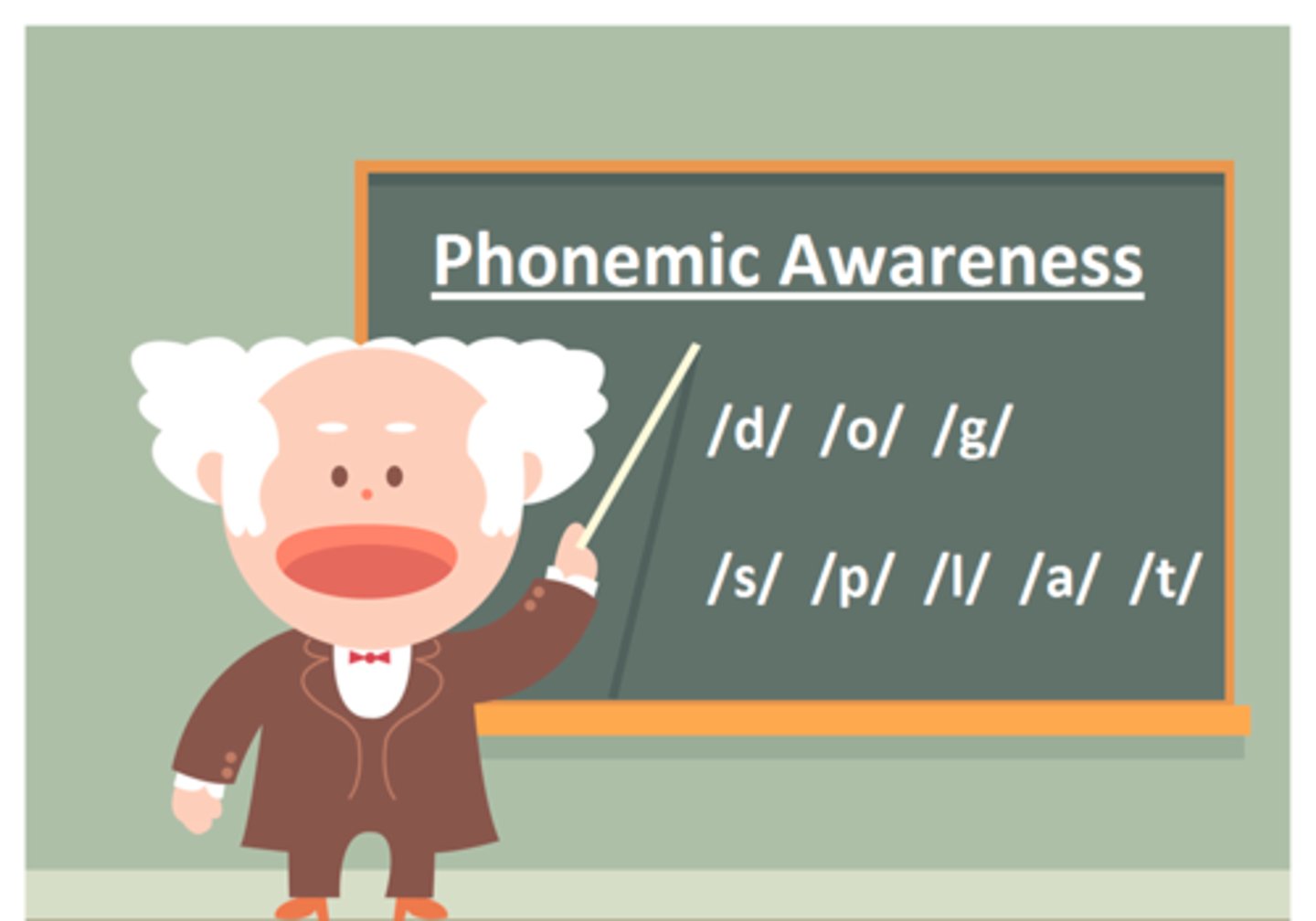
Morphemes
the smallest units of meaning within a language
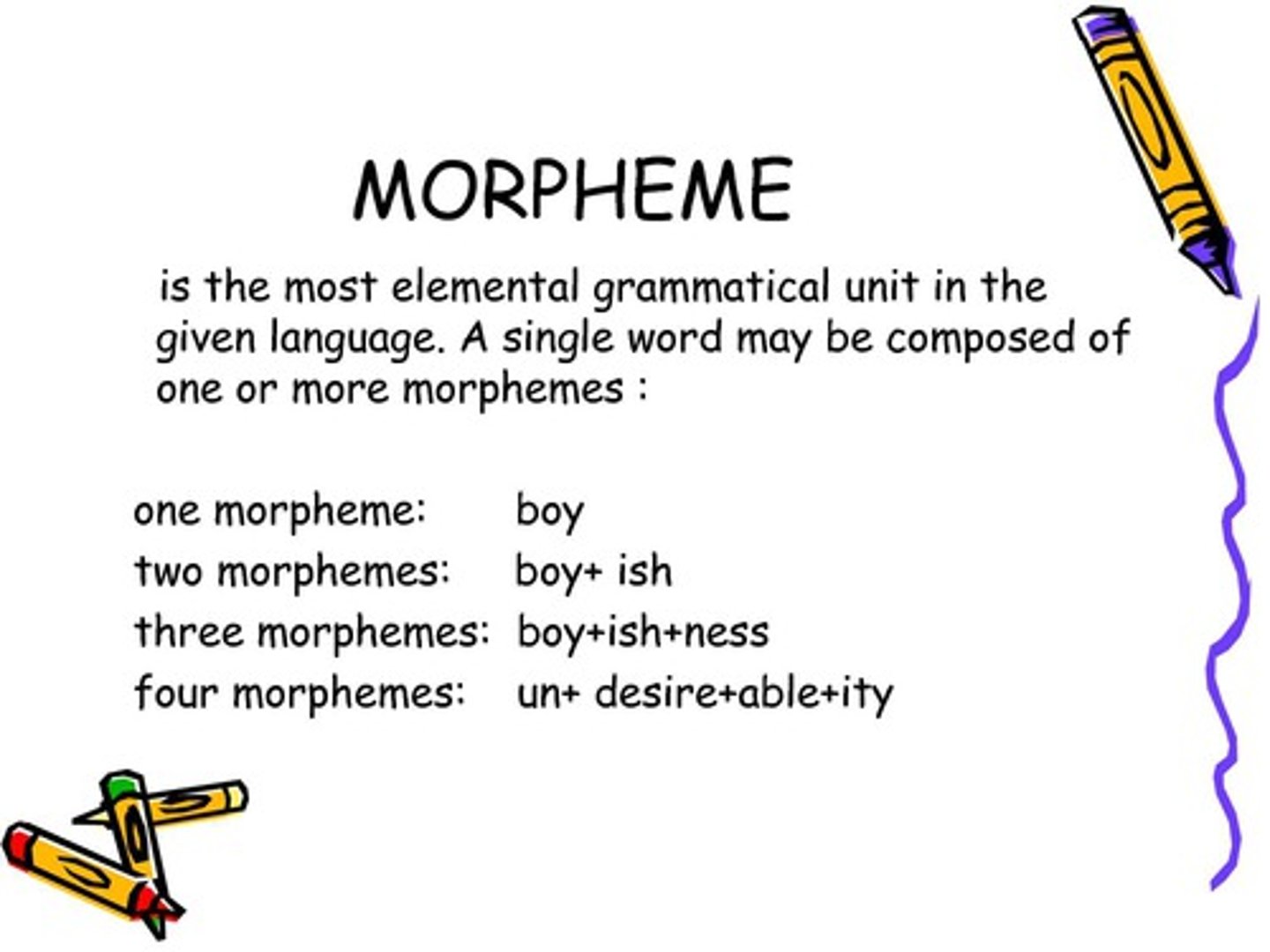
Semantics
the study of meaning in a language and how people learn to understand what utterances in a language communicate
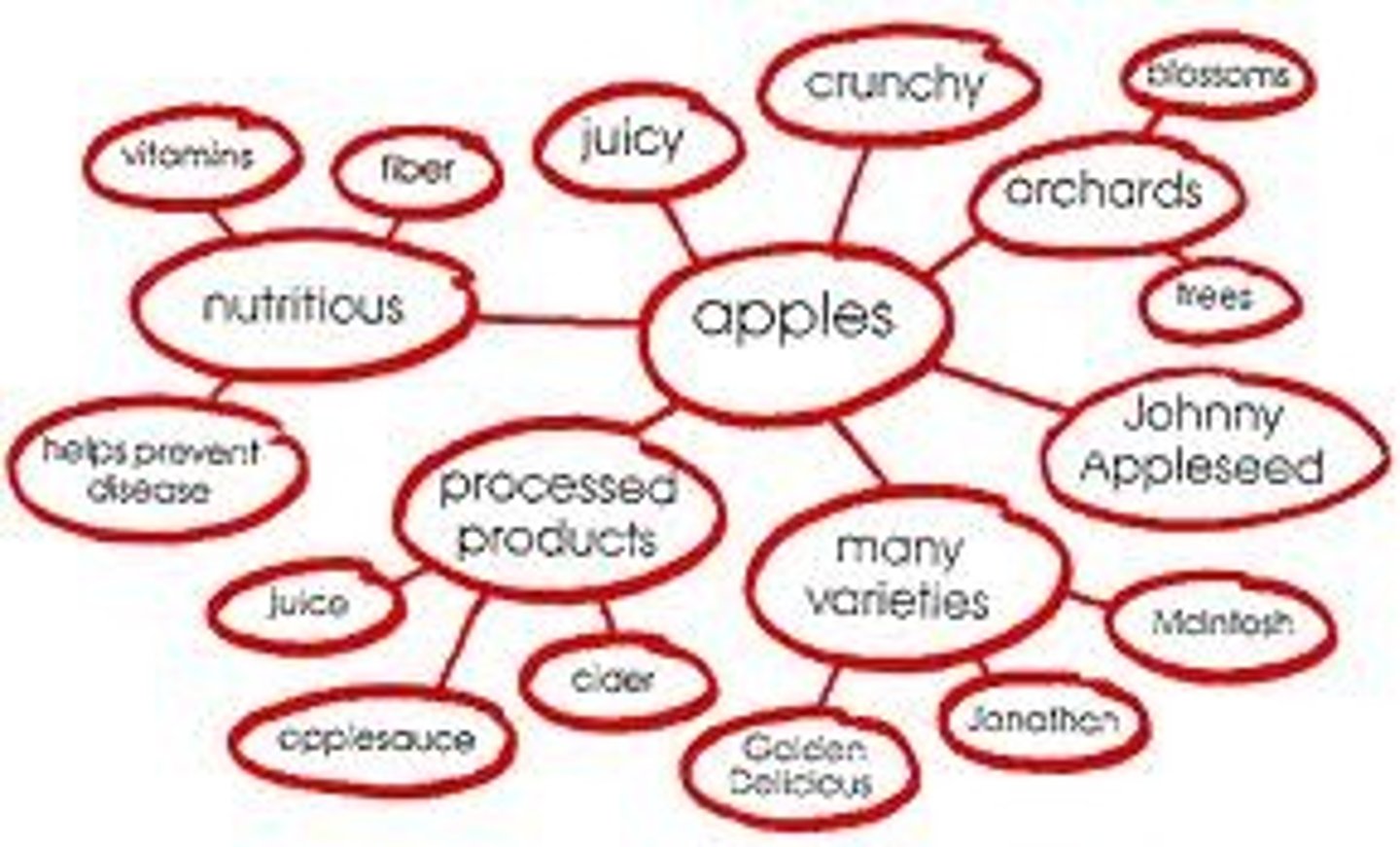
Grammar
the set of rules in a language that explain how parts of speech are used in both writing and speaking
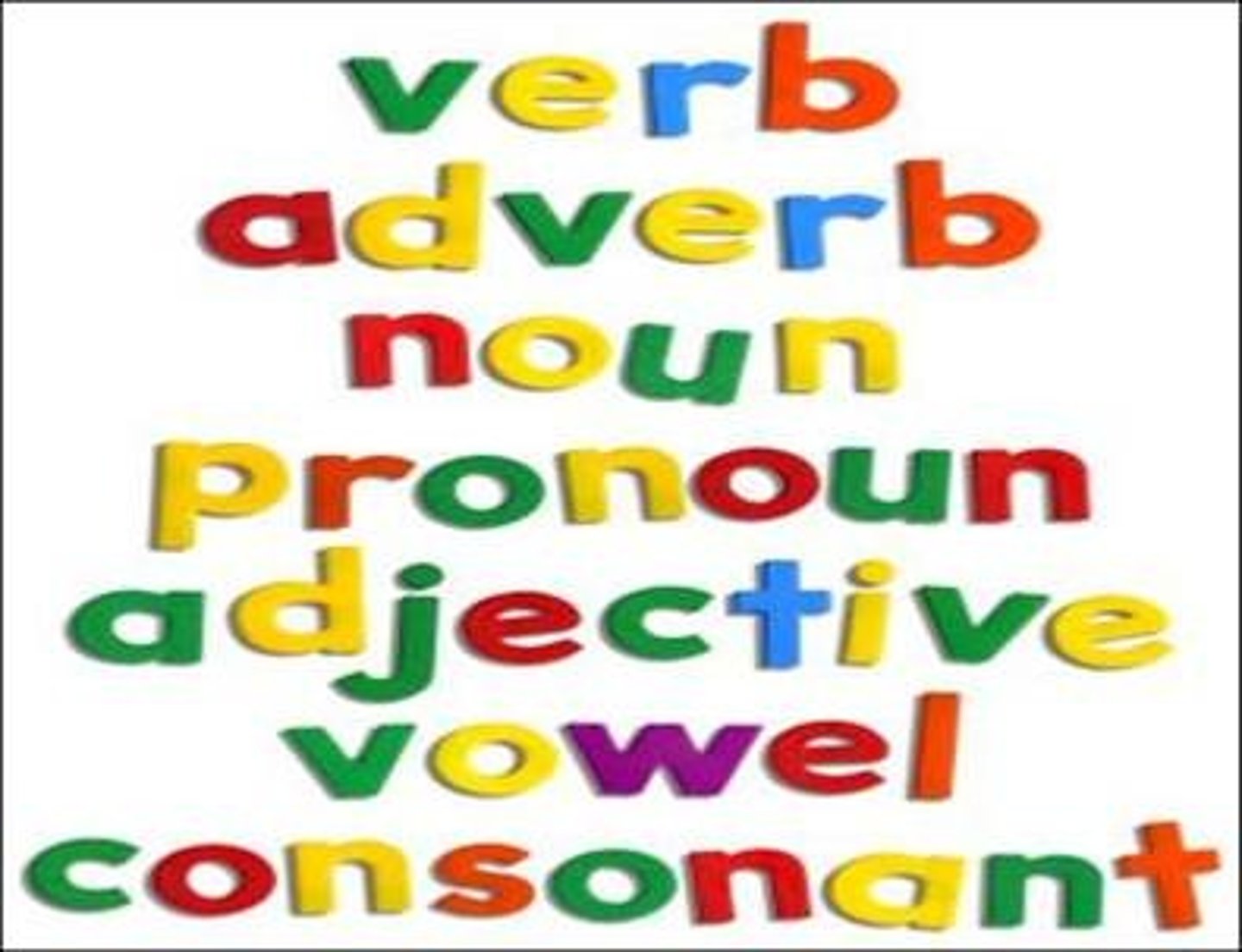
Syntax
the rules in a language for arranging words into grammatically sensible sentences, clauses and phrases
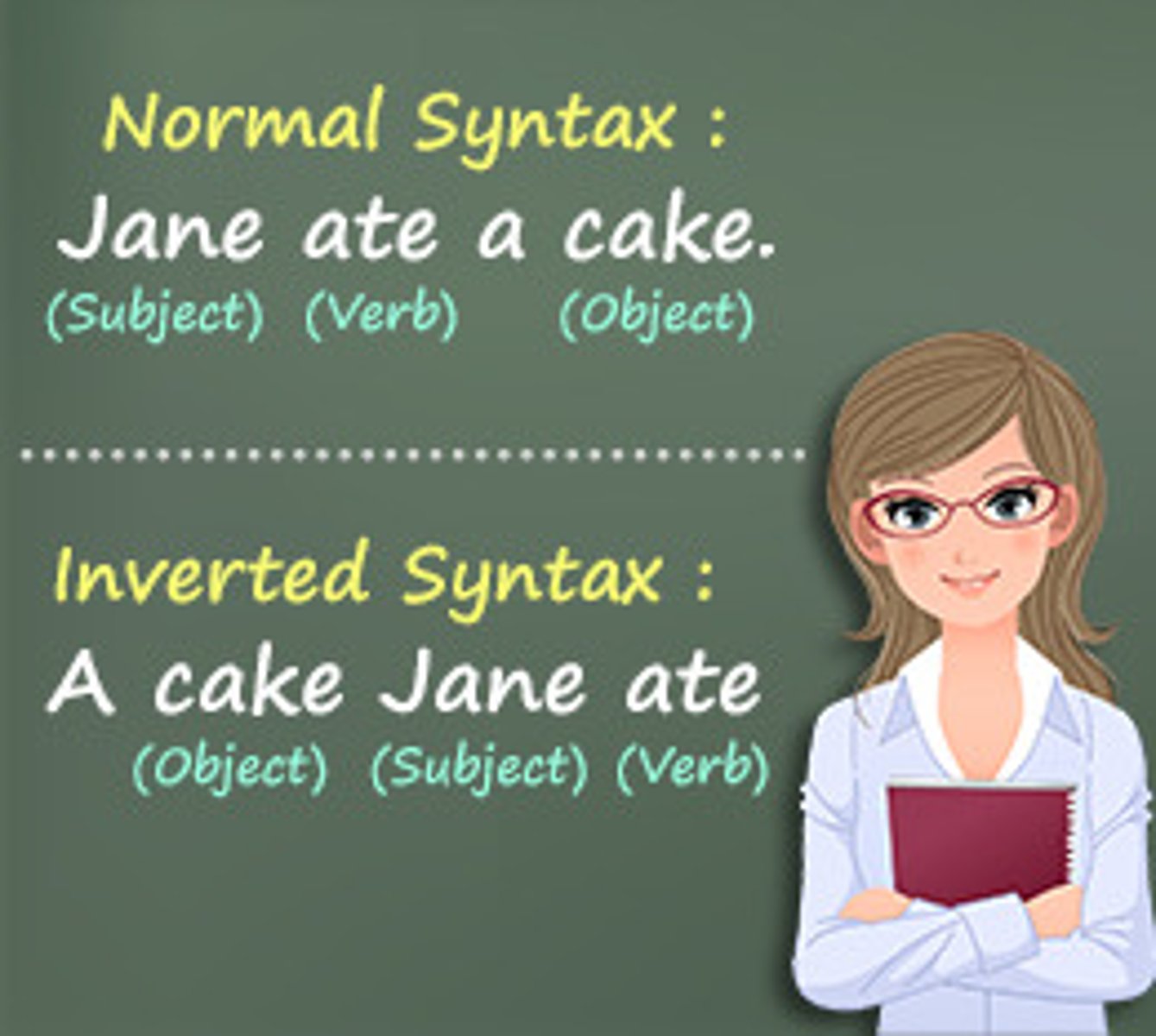
Cooing
pleasant vowel-like noises made by infants, beginning around 2 months of age

Babbling
a stage of language development at about 4 months when an infant experiments with articulate sounds, but does not yet produce any recognizable words

One-word stage
the stage in speech development from about 9-18 months during which a child speaks mostly in single words
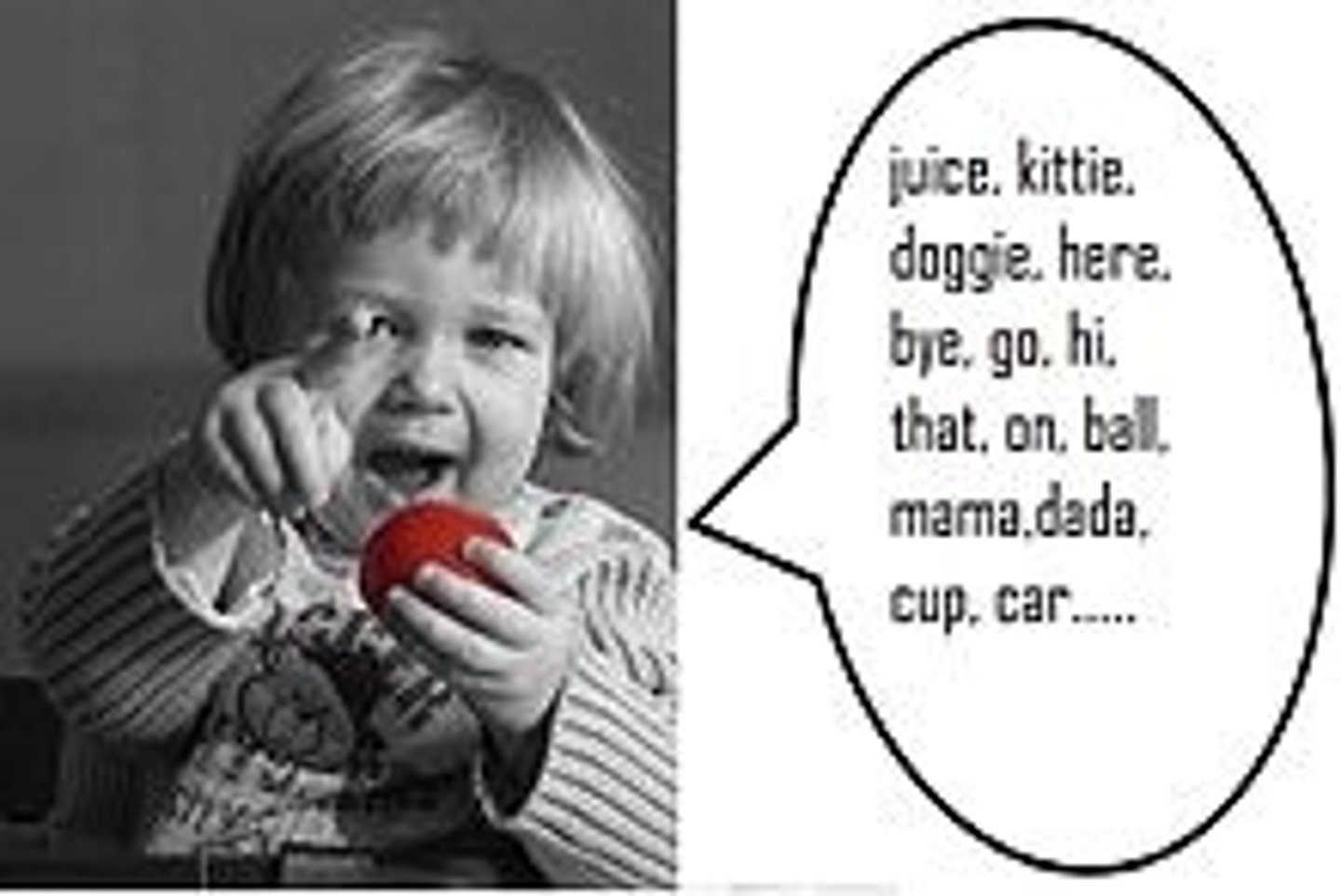
Telegraphic speech
when children use simple sentences, often composed of just a noun and verb, that adhere to the basic rules of grammar
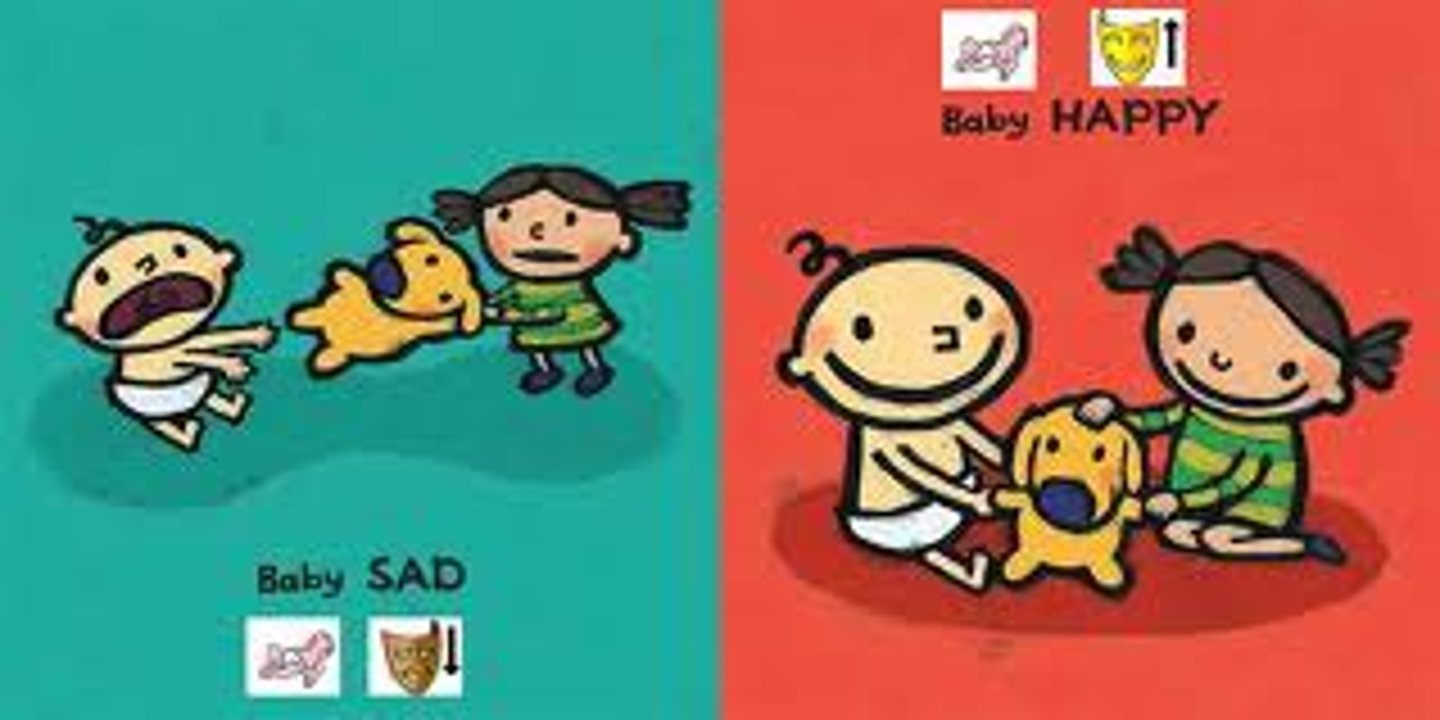
Overgeneralization of language rules
when children use grammar in an irregular way as they are learning the rules (e.g., "I runned", "he hitted", "you buyed")
